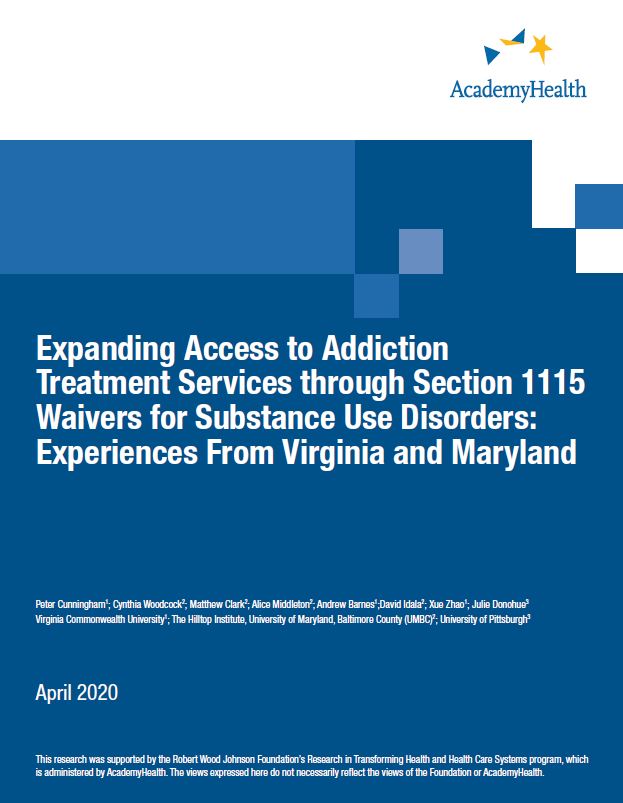
Expanding Access to Addiction Treatment Services through Section 1115 Waivers for Substance Use Disorders: Experiences From Virginia and Maryland
The purpose of this report is to describe the experiences of two early adopters of Section 1115 waivers for substance use disorders, Maryland and Virginia, in terms of waiver implementation and the impact on the addiction treatment system for Medicaid members.
State Medicaid programs play a leading role in addressing the nation’s opioid epidemic, covering nearly four in 10 people with opioid use disorders. An increasing number of states have applied for and received Medicaid Section 1115 demonstration waivers that allow them to receive matching federal Medicaid payments for services at short-term residential treatment facilities that fall under the definition of an Institution for Mental Disease (IMD). These “IMD waivers” allow states to offer the entire continuum of addiction treatment services to their Medicaid members based on widely accepted standards for evidence-based care.
Focusing on the experiences of two states, Maryland and Virginia, a new report finds that IMD waivers expanded access to residential treatment services, though coordination across providers and settings of care and overall system capacity remain long-term challenges. Findings highlight that IMD waiver states have different starting points with respect to coverage of addiction treatment services and the delivery system infrastructure, which will affect waiver implementation and ultimate impact. In particular, states with less robust coverage and delivery systems prior to waiver implementation will require more extensive preparations, outreach, and provider training on the part of state agencies.
The study was conducted by researchers at Virginia Commonwealth University; The Hilltop Institute, University of Maryland, Baltimore County (UMBC); and the University of Pittsburgh, with support from the Robert Wood Johnson Foundation. The project is one of several studies supported by the Foundation’s Research in Transforming Health and Health Care Systems program, which is managed by AcademyHealth.